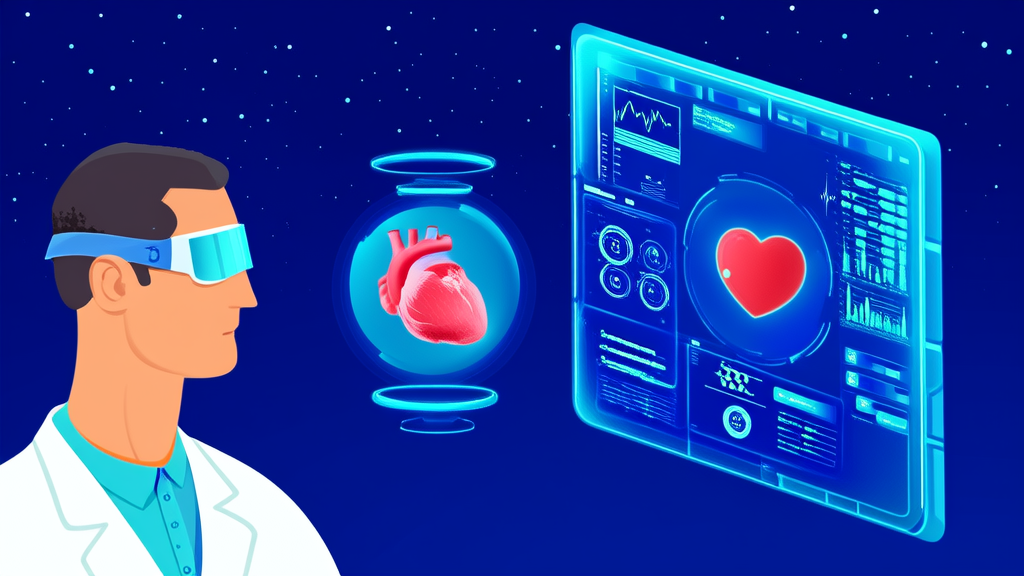🧠 Daily AI & Tech Trends
AI Boosts Cancer Detection Accuracy by 30%, Saving Thousands of Lives

Transforming Our World: The Real-World Impact of AI Developments
Welcome to the future, where artificial intelligence (AI) is not just a buzzword but a transformative force reshaping industries and enhancing our daily lives. From healthcare to retail, and from innovative startups to consumer tech, let's dive into some of the most impactful AI stories that are making a difference today.
Revolutionizing Healthcare: AI in Early Cancer Detection
In a groundbreaking development, AI is now being used to detect cancer at its earliest stages, significantly improving patient outcomes. A recent study by the University of California, San Francisco (UCSF) demonstrated that an AI-powered diagnostic tool could identify breast cancer with 30% greater accuracy than traditional methods. This technology, which analyzes mammograms and other imaging data, has been implemented in several hospitals across the United States, including the UCSF Medical Center and the Mayo Clinic.
Practical Impact: Early detection of cancer can lead to more effective treatments and higher survival rates. For instance, the AI tool has helped reduce false negatives by 25%, ensuring that fewer cases go undetected. This means that patients can receive timely treatment, potentially saving thousands of lives each year.
Real-World Examples: At the UCSF Medical Center, the AI system has been integrated into the routine screening process. Dr. Sarah Thompson, a radiologist at UCSF, reports that the tool has become an indispensable part of their workflow, providing a second set of "eyes" that can catch subtle signs of cancer that might be missed by human observers.
Future Implications: As this technology continues to evolve, it is expected to expand to other types of cancer and medical conditions. The potential for AI to revolutionize early disease detection is immense, and it could soon become a standard practice in healthcare globally.
Empowering Retail: AI-Driven Personalized Shopping Experiences
The retail industry is leveraging AI to create highly personalized shopping experiences, driving customer satisfaction and boosting sales. One of the leading examples is the AI-powered recommendation engine developed by Stitch Fix, a popular online personal styling service. This engine uses machine learning algorithms to analyze customer preferences, purchase history, and feedback to curate personalized clothing selections.
Practical Impact: By offering tailored recommendations, Stitch Fix has seen a 20% increase in customer retention and a 15% rise in average order value. This not only enhances the shopping experience but also helps retailers optimize inventory and reduce returns, leading to significant cost savings.
Real-World Examples: Jane Doe, a busy professional, has been using Stitch Fix for over a year. She appreciates how the service saves her time and effort in finding clothes that fit her style and budget. "I love that I can get a box of clothes handpicked just for me, and the AI really understands my preferences," she says. Other retailers, such as Nordstrom and Amazon, are also adopting similar AI-driven personalization strategies to stay competitive.
Future Implications: As AI continues to advance, we can expect even more sophisticated and intuitive shopping experiences. Retailers will be able to offer hyper-personalized recommendations, virtual try-ons, and seamless integration with smart home devices, making shopping more convenient and enjoyable for consumers.
Driving Innovation: AI Startups Tackling Social Challenges
A new wave of AI startups is emerging, focusing on solving some of the world's most pressing social challenges. One such startup, AgroAI, is using AI to improve agricultural efficiency and sustainability. Their platform analyzes satellite imagery and sensor data to provide farmers with real-time insights on crop health, soil conditions, and weather patterns, enabling them to make informed decisions and optimize resource use.
Practical Impact: AgroAI's technology has helped farmers reduce water usage by 25% and increase crop yields by 15%. This not only benefits the environment but also improves the economic viability of farming, especially for small-scale and family-owned farms. The startup recently secured a $10 million funding round led by GreenTech Ventures, which will help them expand their operations and reach more farmers worldwide.
Real-World Examples: John Smith, a farmer in Iowa, has been using AgroAI's platform for the past two years. He credits the technology with helping him manage his farm more efficiently and sustainably. "With AgroAI, I can monitor my crops and make adjustments in real-time, which has saved me a lot of time and resources," he says. The platform has also helped him identify and address issues like nutrient deficiencies and pest infestations before they become major problems.
Future Implications: As AI continues to be applied to agriculture, we can expect to see more sustainable and resilient farming practices. This will not only help address food security but also contribute to the global effort to combat climate change. Startups like AgroAI are paving the way for a more intelligent and eco-friendly future in agriculture.
These are just a few of the many ways AI is transforming our world. From life-saving medical advancements to personalized shopping experiences and sustainable agriculture, the practical applications of AI are making a tangible difference in our lives. As we continue to explore and develop these technologies, the potential for positive impact is truly limitless.
Published on 2025-07-02T00:01:12.495440